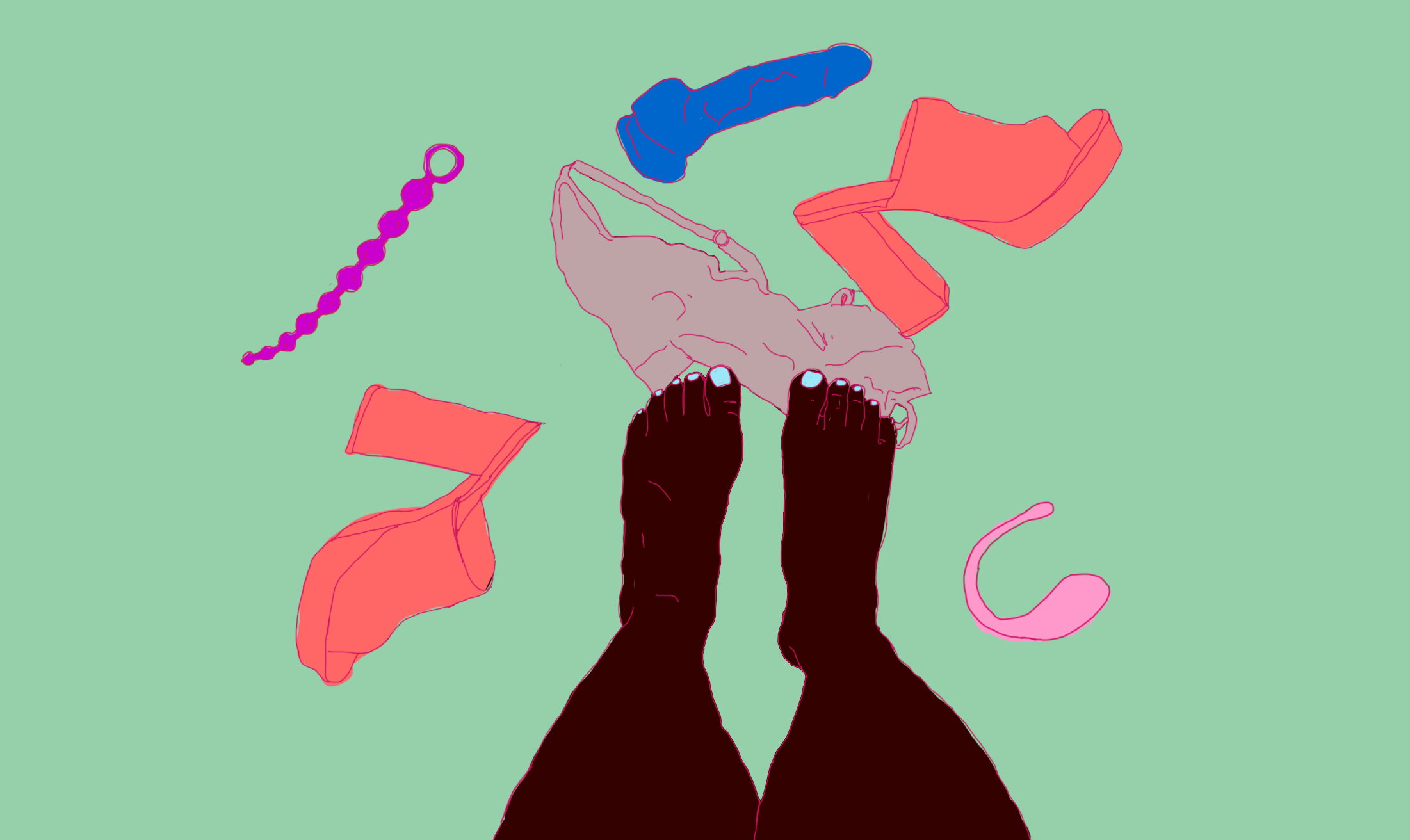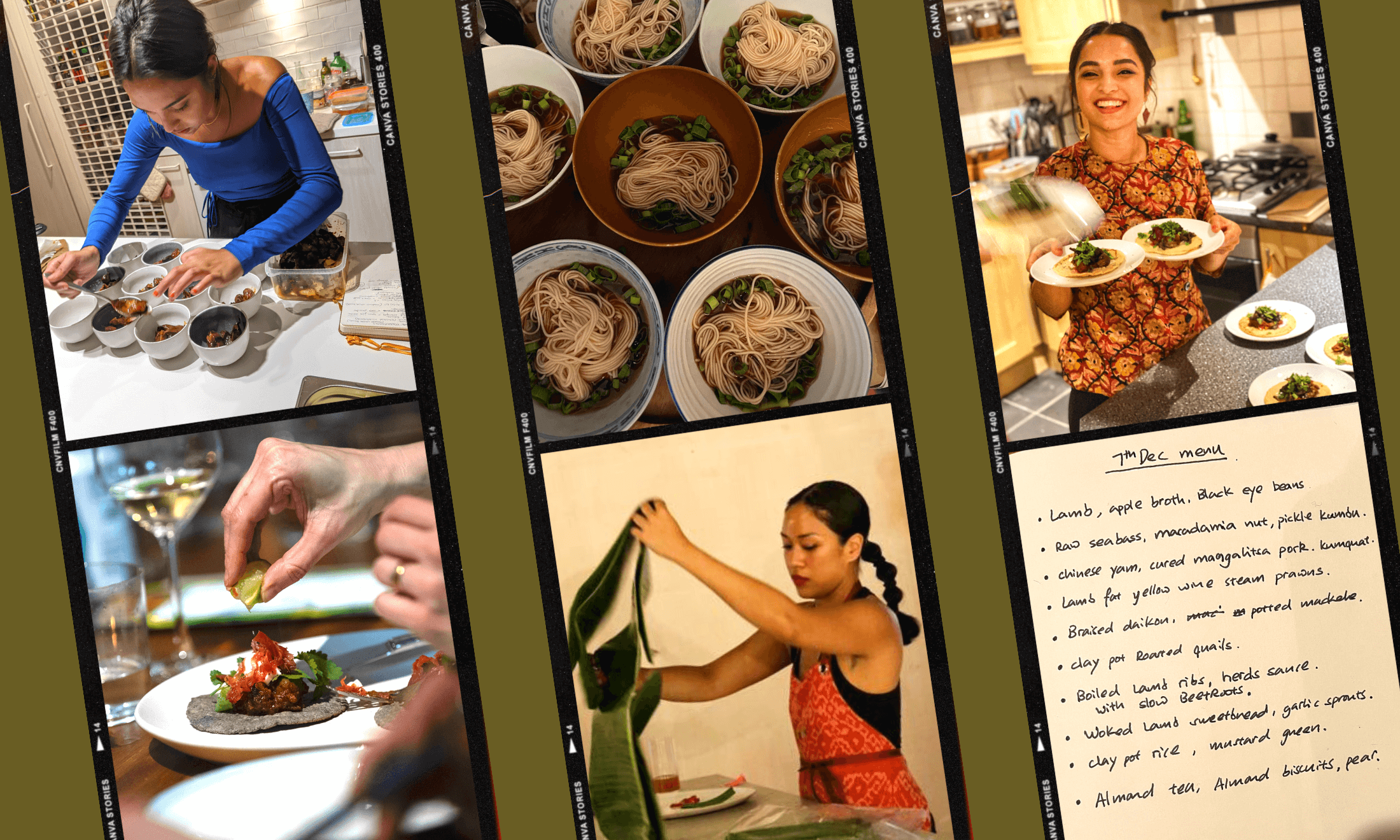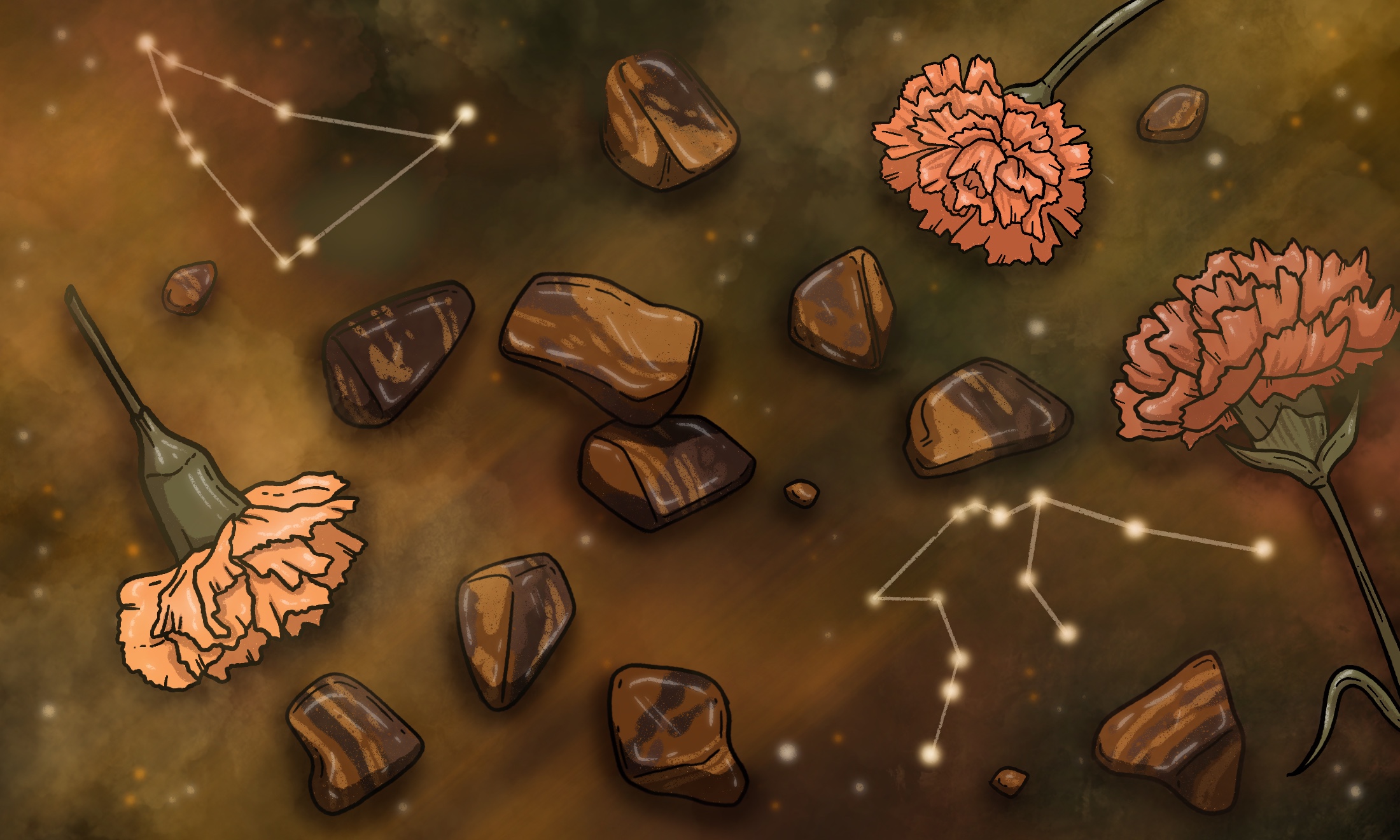
Illustration by Mariel No
It’s impossible not to notice the current trend for more honest depictions of women’s sexuality, right? Yet time and time again, the mainstream media centres white women’s experiences over the stories that could be told about any other groups of sexually active women. Take, for instance the following commercial smash hits, Sex and the City, The L Word, Secret Diary of a Call Girl, Fifty Shades of Grey, Girls, Catastrophe, Fleabag, apart from all being smart and diverting depictions of women’s sexuality, they also don’t really feature any non-white people.
As a sex-positive black woman, I found it genuinely unsettling not to see any kind of representation of anyone who looked like me, enjoying their sexuality. So last summer, I launched my own content brand, Kayleigh Daniels Dated, which is a website that entertains readers with risqué illustrated short stories and informative health features written by sexperts. Most importantly, the fictional protagonist, the eponymous Kayleigh Daniels, is a darker-skinned black woman, who owns her sexuality. Well, mostly.
Although Kayleigh’s origin story dictates that she finished school long ago (she will remain 30 years old forever), from September 2020, Relationships and Sex Education (RSE) and Health Education will become compulsory in all UK secondary schools. This move is welcomed by many. However, it’s imperative that demographics who are so often othered don’t get left out of the narrative. The status quo is being challenged by the growing number of women of colour who are centring people like us in the vital work of re-educating ourselves about the sexual and reproductive health issues we face on a regular basis.
“I think it’s really important that, as women of colour, we endeavour to rid ourselves of the shame that our various cultures often replicate when it comes to sexuality”
Dr Annabel Sowemimo, a community sexual and reproductive health Registrar – originally from London and now working in the East Midlands – founded an initiative called Decolonising Contraception in 2018. Annabel, a contributor for gal-dem, describes the collective as a movement to “increase awareness about the colonial influences on our practice. We argue that decolonising is not just an academic idea but a solution in helping address the huge health inequalities present in sexual and reproductive health.”
“People know so little about the history of sex and reproduction,” she says.“It’s easy to forget this history, but it is still relevant to sex and reproduction today.”
She has been programming regular panel discussions which focus on giving a much-needed platform to marginalised groups – including LGBTQI+ and non-binary people – to debate a multitude of vital issues encompassing the debunking of common myths about contraception prevalent in black communities, the history of sex and reproduction in South Asia and the participation of cis-men in contraception access. The Decolonising Contraception project has already collaborated with several universities, including students at the Harvard School of Public Health, run workshops with great charities like FORWARD UK and has a series running here on gal-dem.
One of the events, A Sexual Utopia: Sexual Wellbeing and Sexual Pleasure, hosted at SOAS University Student’s Union, brought together four self-styled “sexperts” of colour to delve into how societal change can take us closer to destigmatising sex-related issues.
“I’ve known family friends to be scared of keeping condoms in the house, being seen walking to the clinic and even just hanging around with people of the opposite sex”
Together with Annabel, there was myself, Gayathiri Kamalakanthan, a sex educator at Sexplain (a company that delivers sex and relationship education in schools and to young people) and Nadia Deen, the founder, AM Appointment (an uncensored platform offering extensive advice and tips for women and people with vulvas on how to achieve their best orgasm during self-play).
The panel discussed why sexual wellbeing and pleasure is considered taboo in the South Asian and West African diaspora communities and how colonial and imperialist influences repressed indigenous sex positive behaviours – which is a topic that should be acknowledged more often when discussing the sexual revolution. Annabel asked each of us, “Do you guys have an idea of what we can be doing to change the narrative and construct sexual wellbeing and pleasure differently? Maybe you disagree that it needs to be constructed differently… maybe you’re living in this sexual utopia!?”
Personally, I think it’s really important that, as women of colour, we endeavour to rid ourselves of the shame that our various cultures often replicate when it comes to sexuality. The sex-positive histories of many marginalised people has often been deliberately misrepresented Western imperialists – which is why we need to be just as involved in this latest wave of sexual enlightenment as white women are. But that can all get very academic, very quickly…
My own practical advice for banishing the cultural burden of sex-based shame is to get to know your own body and your partner’s body, because people react differently to different kinds of things. So, in our pleasure-seeking experiences, we should all aim to articulate what we’re feeling with words – and with body language – what we like, and what we don’t like.
“In our pleasure-seeking experiences, we should all aim to articulate what we’re feeling with words – and with body language”
Nadia works at Sh! Women’s Erotic Emporium and although her MA was based around fashion artefacts, she’s spent lots of time studying women’s sexuality, fantasy and culture. “I want to revolutionise the narrative of female masturbation and show women of colour that it’s not dirty,” she tells me. “I’m building a community for women who want to have the ‘bold conversation’, while feeling empowered to share and support other women in becoming masters of their own sexual pleasure.”
Meanwhile, the focal point of Gayathiri’s MA was the relationship between the worship of the divine and sexual and sensual connections in fourteenth-century Hindu practice. Gayathiri thinks that “access to services may be more difficult within the South Asian community, due to existing internal stigmas concerning sexual health. When we were in our teens, I’ve known family friends to be scared of keeping condoms in the house, being seen walking to the clinic and even just hanging around with people of the opposite sex. It’s important that we start talking about these things.” These types of negative behaviours often developed as a reaction to the cultural and religious dogmas that were promoted by various colonial regimes.
Gayathiri continues: “We should try to get away from the awkwardness surrounding the topic by starting these kinds of conversations early on in our school, and start using more inclusive language to help validate people outside of cis and heteronormativity. Empathy is really important.”
Certainly, the current sex positivity movement needs to be more inclusive for women of colour. We can start by expressing how sex can be perceived in a variety of ways in different cultures, and for different people within those cultures. The rise of projects like ours proves that there is space for new and different voices. But we need to cultivate more voices – louder voices.
You can also watch the full series of panel discussions here. The Kayleigh Daniels Dated team is currently in the middle of a crowdfunding campaign to raise the £10,000 needed to complete Season 1. Do pledge if you’re able!









